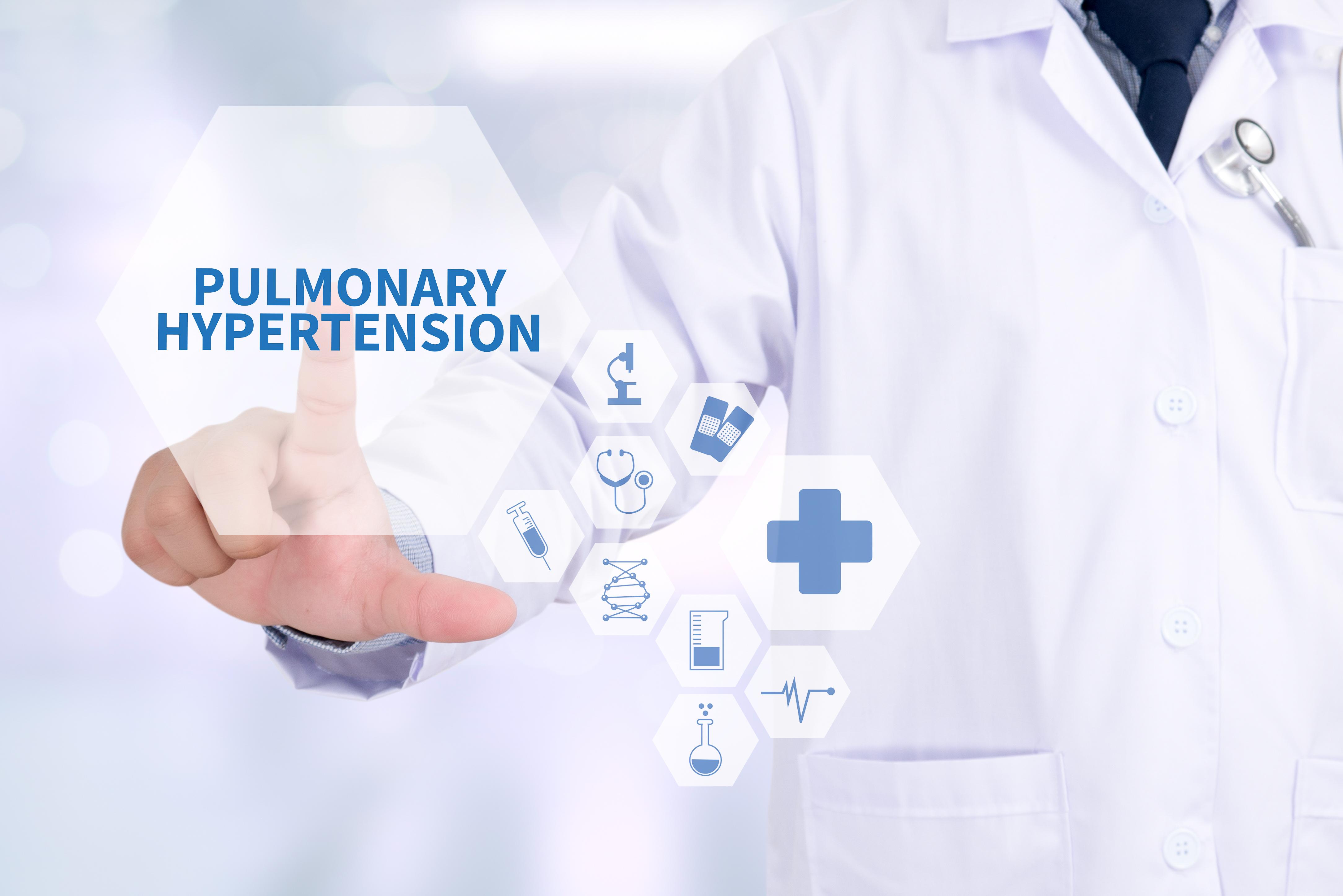Interim Results Published of Clinical Trial Showing Benefits of Inhaled Nitrate to Treat PH
Written by |

Mast Therapeutics announced that positive interim data from its ongoing Phase 2a clinical trial of AIR001 (sodium nitrite, or Aironite) inhalation solution for the treatment of patients with pulmonary hypertension (PH) have been published in the Journal of Clinical Investigation (JCI).
The open label, Phase 2a clinical trial (NCT01431313) is evaluating the effects of AIR001, or nebulized inhaled nitrite, delivered in a dose-escalating manner, on changes in cardiovascular hemodynamics in patients with PH who undergo standard right heart catheterization (a diagnostics technique for PH).
In an analysis of the 36 patients enrolled to date, treatment with AIR001 significantly decreased pulmonary, right atrial, and pulmonary capillary wedge pressures, with a substantial increase seen in pulmonary artery compliance, the company said in a news release. These benefits were more pronounced in the 10 patients with PH associated with heart failure with preserved ejection fraction (HFpEF; heart failure characterized by a left ventricular compliance of 45% or more, leading to increased pressure in the left ventricle).
The trial is expected to enroll a total of 50 PH patients: 20 with a diagnosis of PH associated with HFpEF, 20 others with (WHO) Group 1 pulmonary arterial hypertension (PAH) on background PAH therapy, and six with WHO Group 3 PH. Participants are being treated with a first dose of 45 mg of AIR001 via nebulizer; and 60 minutes after with an escalation dose of 90 mg. The single center trial is being conducted at the University of Pittsburgh; those interested in participating can find more information on the study’s clinical trials.gov webpage.
“The results observed to date are important as they demonstrate that AIR001 can significantly lower right atrial pressures, pulmonary artery pressures, and pulmonary artery occlusion pressures, as well as improve pulmonary artery compliance,” said Edwin L. Parsley, DO, chief medical officer of Mast Therapeutics. “In the study, AIR001 administration appears to be safe in Groups 1-3 PH and may be efficacious in Groups 2 and 3 PH with further study in non-Group 1 PH warranted.”
Compared to baseline median values for the 10 PH-HFpEF patients, pulmonary capillary wedge pressure and mean pulmonary artery pressures were also markedly decreased (7.5 mm Hg and 7.9 mm, respectively), with no significant changes in systemic blood pressure or heart rate, the company reported. Pulmonary artery compliance increased by 35 percent.
There were no significant decreases in peripheral oxygen saturation. AIR001 was generally well-tolerated.
In terms of dose effect analysis, results showed that most cardiovascular hemodynamic were affected in a dose-dependent manner with the exception of pulmonary artery compliance. Specifically, researchers observed a significant AIR001 dose effect on right atrial, mean pulmonary artery and pulmonary capillary wedge pressures. There was a decrease in the cardiac index in a dose-dependent manner. The pulmonary artery compliance increase was not related with AIR001 dose.
“These data are consistent with results we saw in a separate investigator-sponsored Phase 2 study of AIR001 in HFpEF earlier this year and serve as a further step in validating AIR001 and establishing its potential clinical utility in HFpEF,” Brian M. Culley, chief executive officer of Mast Therapeutics, said. “We look forward to advancing AIR001 in this area of high unmet medical need for which there is no FDA-approved therapy available.
“In addition to full results from this 50-patient study, the 100-patient ‘INDIE-HFpEF’ study of AIR001 also is expected to complete enrollment and announce top-line results next year,” Culley added. “We believe these are important value-creating studies which convincingly demonstrate the potential for clinical utility of AIR001 in HFpEF and potentially other settings.”
In May, the company presented these interim results at the 2016 American Thoracic Society (ATS) International Conference, held in San Francisco.
AIR001 is a sodium nitrite solution for inhalation via nebulization. Nitrite is a vasodilator that can be recycled in vivo to form nitric oxide (NO), an event that has many beneficial effects, such as blood vessel dilation and inflammation reduction. AIR001 was granted Orphan Drug status by the U.S. Food and Drug Administration and the European Medicines Agency for the treatment of pulmonary arterial hypertension.



